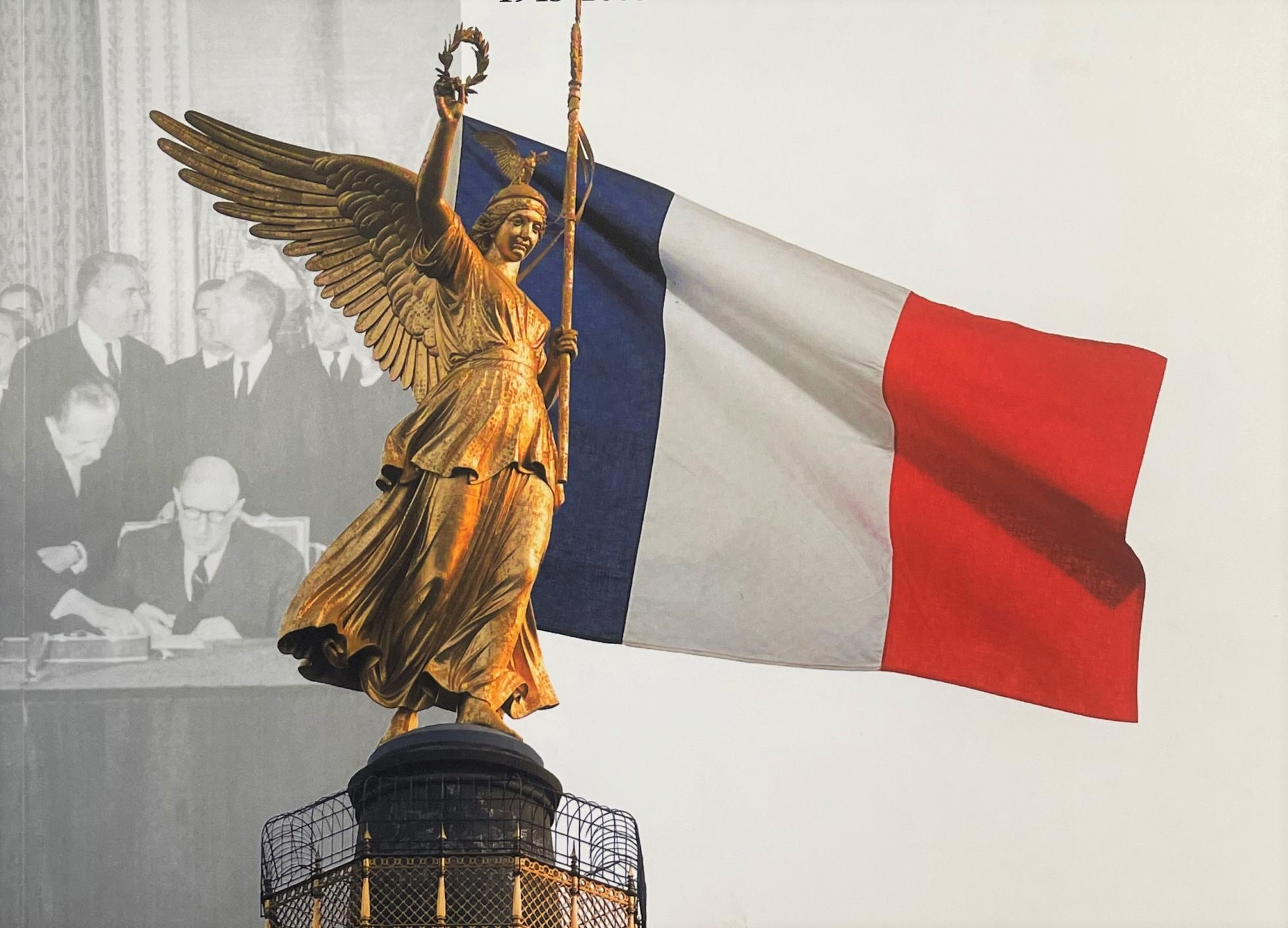To commemorate the 40th anniversary of the signing of the German-French Friendship Treaty by West German Chancellor Konrad Adenauer and French President Charles de Gaulle, the Allied Museum is presenting the special exhibition Vive Berlin! A Focal Point of German-French History. 1945 – 2003.
The Allied Museum invites visitors to a journey through time in Berlin, one of the focal points of German-French history. Over the centuries, the French have greatly influenced the city of Berlin. Encounters between Germany and France in the city have sometimes been filled with tension, such as when Napoleon´s troops occupied Berlin at the beginning of the 19th century, and sometimes friendly, such as when the French Huguenots settled in the city in the 17th century. With the arrival of the French occupation forces in the year 1945, a new chapter of German-French history in Berlin was ushered in. Using the example of their democratization and economic policies, the exhibition shows that the French followed a decidedly autonomous occupation policy in Berlin, putting to rest the notion that France was never more than merely the “junior partner of the Big Three.” France´s commitment in and to Berlin was also shown clearly during the four-power negotiations on the status of Berlin in the year 1971. The French were the primary advocates of maintaining the city´s four-power administration. Thanks to the support provided by the French government, and with the approval of the governments of Great Britain, Russia and the USA, we are proud to present the original treaty text in the exhibition. Contemporary witnesses provide insight into the innumerable German-French encounters in culture and sports, sponsored by France: the German-French choir and the 25 km de Berlin. Worthy of special mention is the Centre culturel français, which opened in East Berlin in the year 1984. It remained the only cultural center of a Western country in former East Germany. Its multi-faceted cultural events are documented with photographs, posters and programs.
France´s interest in Berlin continued even following the withdrawal of the Western forces from Berlin in 1994. French companies, research institutions and private individuals settled in Berlin, participating in the economic and cultural redesign of the Federal Republic of Germany´s new capital city. Many objects and photos illustrate the current facets of the relationship between France and Berlin – including the German-French youth project´s float from the 2002 Love Parade.
The patronage of the exhibition has been taken on by the coordinators for German-French cooperation, Prof. Dr. Rudolf von Thadden (German Foreign Office) and former Minister André Bord (French Foreign Ministry). The following people were involved in working on the exhibition concept: Prof. Dr. Etienne François (Technical University of Berlin and University of Paris I-Sorbonne), Prof. Dr. Rainer Hudemann (University of Saarland), Prof. Bernhard R. Kroener (University of Potsdam), Dr. Lieselotte Kugler (German Technology Museum Berlin) and Dr. Anne-Marie LeGloannec (Centre Marc Bloch, Berlin).
Museum magazine no. 7 will be published to accompany the exhibition; it includes contributions from well-known contemporary witnesses and experts on German-French history. As always, the magazine will be published in German, French and English.
Within the scope of Long Museum Night, the Allied Museum will cooperate with the Institut Français de Berlin in hosting a French night. Additional events are planned in cooperation with the Berlin representation of the state of Saarland and the Franco-German Youth Office.
The exhibition is open from January 31 to July 31, 2003, daily except Wednesdays. Admission is free.
Any questions should be addressed to Uta Birkemeyer, curator of the exhibition.
The Allied Museum would like to thank for their financial support:
ASKO-EUROPA-Stiftung, Saarbrücken
Auswärtiges Amt, Berlin
Commission des Affaires culturelles du Sénat, Paris
Evangelisch-reformierte Bethlehemsgemeinde, Berlin
Evangelisch-reformierte Schloßkirchengemeinde, Berlin
Französische Kirche zu Berlin
Hundert,6 DAS SUPER RADIO, Berlin
Sonepar Deutschland GmbH, Düsseldorf

